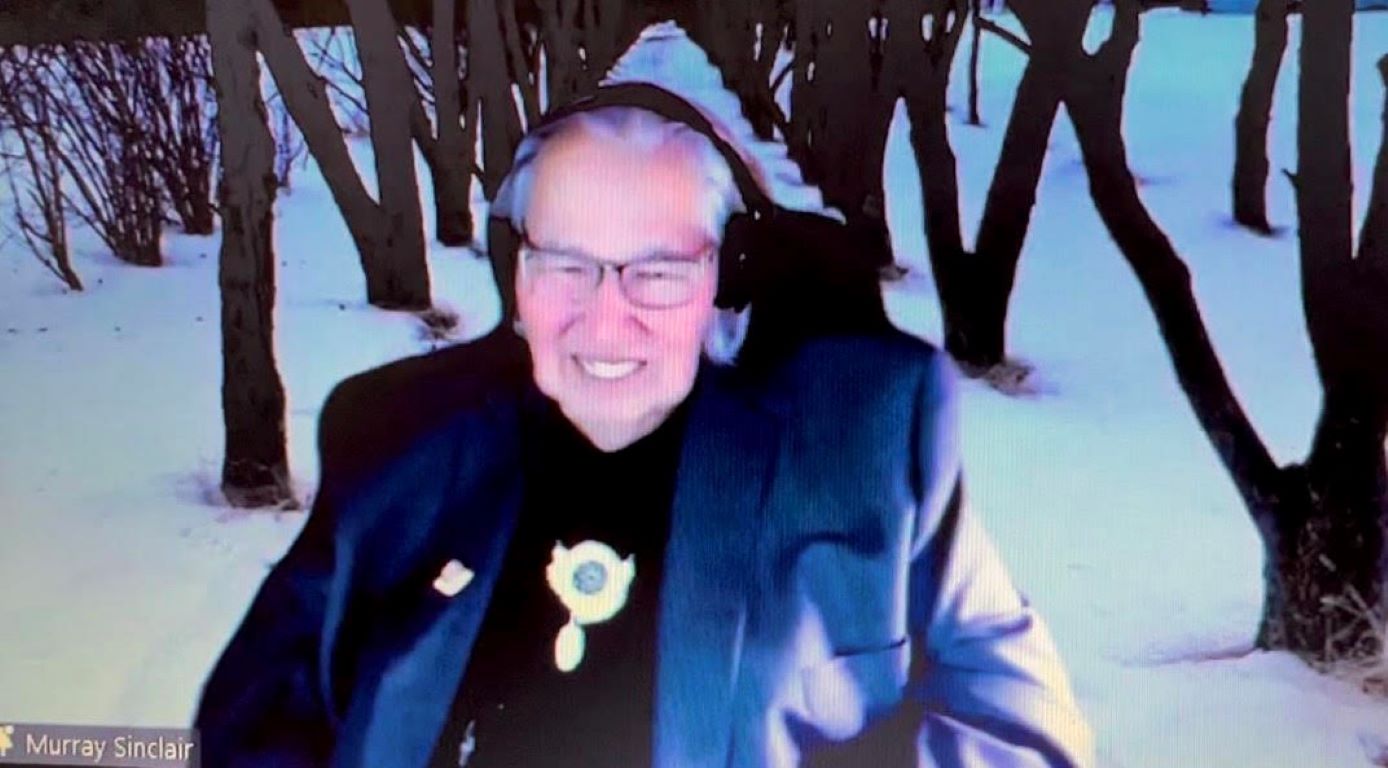Murray Sinclair says education for Indigenous students is at a “critical point”.
“That critical point is emphasized by the fact that Indigenous students make up the highest dropout rate, and the failure rates are unacceptably high,” Sinclair said in a retrospective Zoom event with Algonquin College staff and students on Jan. 30.
“It has nothing to do with intelligence or capacity. It has everything to do with the programs for education that are in place, for the most part.”
Added Sinclair: “You took away our sense of self and gave us nothing in return. We can change that.”
Sinclair was born just north of Selkirk, Man. He has spent his life creating a new image of justice for Indigenous people. He is the former chair of Canada’s Truth and Reconciliation Commission. Elected as Manitoba’s first Indigenous judge in 1988, he also served as legal counsel for the Manitoba Human Rights Commission. He served as a senator from 2016-2021 and is a recipient of the Order of Canada and Meritorious Service Cross.
The online event hosted 101 attendees who were able to submit one question each.
Sinclair remained over his allotted time, answering additional questions.
Algonquin College president and CEO Claude Brulé welcomed Sinclair to the event. Jamie Bramburger, manager of community and student affairs, delivered a land acknowledgment.
Chief Wendy Jocko of the Algonquins of Pikwakanagan welcomed Sinclair with a prayer in Anishinaabemowin and English.
Questions touched on education, support, language, relationships and responding to the Calls to Action.
“One of the disadvantages of Zoom is you don’t get to see your audience,” Sinclair said.
“I like to think of it this way, too: it makes it easier to talk to more groups, more presentations. I can do a presentation one day in Halifax, and the next day in B.C. It is convenient in that respect.”
Answering a question about the education system, he said, “The history of our people gives us our sense of identity and validity. Indigenous students don’t get that from the public school system. The public school system in Canada is largely a white supremacist system, based on the concept of colonization.”
Not everything he had to say about school was critical.
“I would not have become what I’ve become without the help of some great teachers who pushed me, pushed me past those who were resistant to me,” Sinclair said.
On finding purpose, Sinclair said, “Part of that is through the education system. It is also through your experience, who your heroes were, and what your parents did, and what your parents were.”
“In my teachings, our purpose is reflected in our spirit name,” Sinclair said.
His Ojibwe name is Mizanay Gheezhik, which means “the One Who Speaks of Pictures in the Sky.”
“It’s about a young man who goes to a high place to seek out answers for his people who are struggling,” Sinclair said.
While Sinclair criticized the education system, he also recognized the significant role the system plays in reconciliation.
“Education got us into this mess. Education will get us out,” he said. “I said that on the final day of the Truth and Reconciliation Commission. Education is not about being in school. Education is about learning what it means to be a human being,”
For more information about the Truth and Reconciliation Committee’s Calls to Action, visit the Government of Canada’s website.
For up-to-date happenings with the Calls to Action, visit www.indigenouswatchdog.org.


